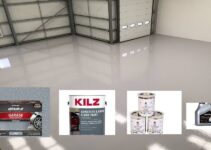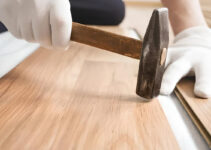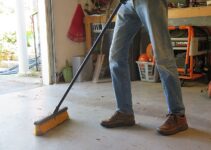Polyurea Garage Floor Coating
When it comes to garage floors, homeowners are often looking for a high-performance and durable solution that can withstand the demands of daily use.
Polyurea, a cutting-edge floor coating, has been gaining popularity as an excellent option for garage floors.
In this article, we will delve into the world of polyurea garage floor coating, exploring its unique properties, benefits, drawbacks, and what makes it stand out as an excellent choice for homeowners.
What is Polyurea Garage Floor Coating?
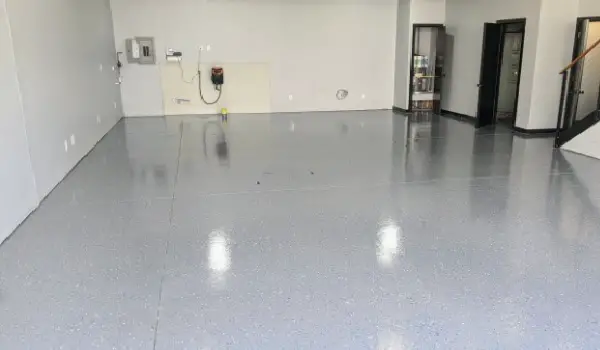
Polyurea is a type of floor coating that offers exceptional performance and durability. It is a two-component system, composed of a base and a hardening agent, which is applied in a single coat.
One of the most significant advantages of polyurea is its quick curing time, which means homeowners don’t have to wait for extended periods before they can use their garage again.
The Benefits of Polyurea Garage Floor Coating
1. Durability and Longevity
Polyurea is renowned for its outstanding durability and longevity. It can withstand heavy loads, resist impact, and endure the wear and tear that comes with regular use in a garage.
This makes it an ideal choice for homeowners who want a long-lasting flooring solution that will serve them well for years to come.
2. Chemical and Stain Resistance
Garages are often exposed to various chemicals and substances, from oil and grease to solvents and cleaners.
Polyurea’s chemical and stain-resistant properties make it impervious to these substances, ensuring that the floor remains in top-notch condition and maintains its appearance over time.
3. Slip-Resistance
Safety is a crucial consideration for any flooring material, especially in a garage where spills and moisture can create slippery conditions.
Polyurea has excellent slip-resistant qualities, reducing the risk of accidents and providing homeowners with peace of mind.
4. Easy to Clean
Maintaining a clean garage floor can be a challenge, but with polyurea, cleaning is a breeze. Its smooth surface prevents dirt and grime from penetrating, making it easy to wipe away spills and debris with minimal effort.
5. Fast-Curing
One of the standout features of polyurea is its rapid curing time. Unlike other coatings that may take days to fully dry, polyurea can cure within hours, allowing homeowners to get back to their regular garage activities sooner.
The Drawbacks of Polyurea Garage Floor Coating
1. Higher Cost
While polyurea offers exceptional benefits, it tends to be more expensive than other floor coatings, such as epoxy. Homeowners should consider their budget and the long-term advantages of polyurea before making a decision.
2. Professional Installation Required
Proper installation is crucial for achieving the best results with polyurea. Due to its unique properties, it requires professional expertise to ensure even application and optimal performance. This can add to the overall cost of the project.
3. Less Forgiving Than Epoxy
If mistakes occur during the application process, polyurea can be less forgiving than epoxy when it comes to corrections. It is essential to work with experienced professionals to avoid potential issues.
Read Also: Polyurea vs Epoxy
The Cost of Polyurea Garage Floor Coating
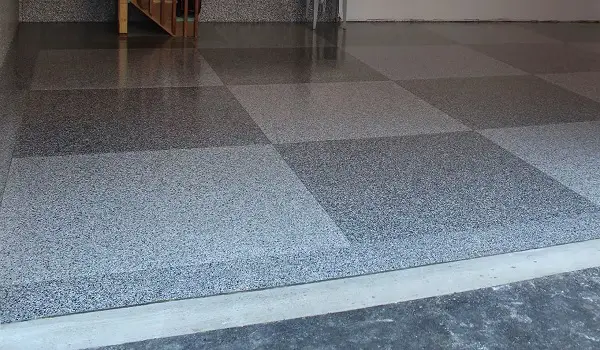
Polyurea and polyaspartic concrete coatings are premium options, offering exceptional durability, impact resistance, and stain resistance.
While these coatings come with a higher price tag compared to standard epoxy coatings, their long-lasting performance makes them a worthwhile investment.
On average, polyurea concrete coatings cost between nine to twelve dollars per square foot as a starting range. For example, coating a 500-square-foot garage floor could amount to approximately $3,500 to $4,500.
Factors Affecting Garage Floor Coating Cost
Several crucial factors influence the overall cost of a garage floor coating project. By understanding these factors, homeowners can better plan and budget for their unique projects.
1. Square Footage of the Project Area
The size of the project area is a significant determinant in calculating the total cost. Typically, working with professional concrete coating contractors allows homeowners to benefit from volume discounts.
As the square footage increases, the cost per square foot may decrease. Therefore, it’s essential to consider the full area to be coated when estimating the budget.
2. Condition of the Existing Concrete
The condition of the existing concrete surface plays a vital role in determining additional costs. Several factors can add to the overall expense:
- Cracks: Any cracks in the concrete must be filled before applying the coating. Larger or numerous cracks may require more extensive repair, leading to higher costs.
- Previous Coating: If the concrete surface has been coated before, removing the old coating, if necessary, adds to the project’s expenses.
- Stains: Grease, oil, or other stains on the concrete surface require special attention during preparation, which may lead to increased costs.
- Concrete Hardness: The hardness of the concrete must be tested before coating to ensure proper adhesion. If the concrete is too soft, additional hardening treatments may be required, adding to the project’s cost.
- Moisture Content: The concrete’s moisture content must be appropriate for proper adhesion. If a moisture barrier is needed, it will incur extra material and labor costs.
Read Also: What Is the Best Concrete Resurfacer?
3. Customizations and Upgrades
Many concrete coating types offer options for customizing the color, pattern, and other upgrades, such as safety features and anti-slip properties.
Customizations enhance the aesthetic appeal and functionality of the coating, but they come at an additional cost.
Depending on the complexity of the customizations, homeowners may add 15 to 40 percent to the total cost of the project.
Read Also: How to Paint Garage Floor
Conclusion
Investing in a polyurea garage floor coating in 2023 is a decision that guarantees durability, longevity, and a visually appealing finish.
While the initial cost may be higher compared to other coatings, the benefits, and long-term savings make it a worthy investment.
When planning for your garage floor coating project, consider the square footage, the condition of the existing concrete, and any customizations you desire.
This will help you set realistic expectations and achieve the look and performance you desire for your garage floor.
FAQs
How long does a polyurea garage floor coating last?
Polyurea garage floor coatings can last up to 15-20 years or more with proper maintenance and care.
Can I apply a polyurea coating to my outdoor patio or pool deck?
Yes, polyurea coatings are suitable for outdoor surfaces, providing excellent protection and enhancing their appearance.
Is polyurea garage floor coating suitable for DIY installation?
Polyurea requires specialized equipment and expertise for proper application, making professional installation necessary for achieving optimal results.
Can polyurea be applied to existing garage floors?
Yes, polyurea can be applied to existing garage floors, provided that the surface is properly prepared and any damages are repaired beforehand.
